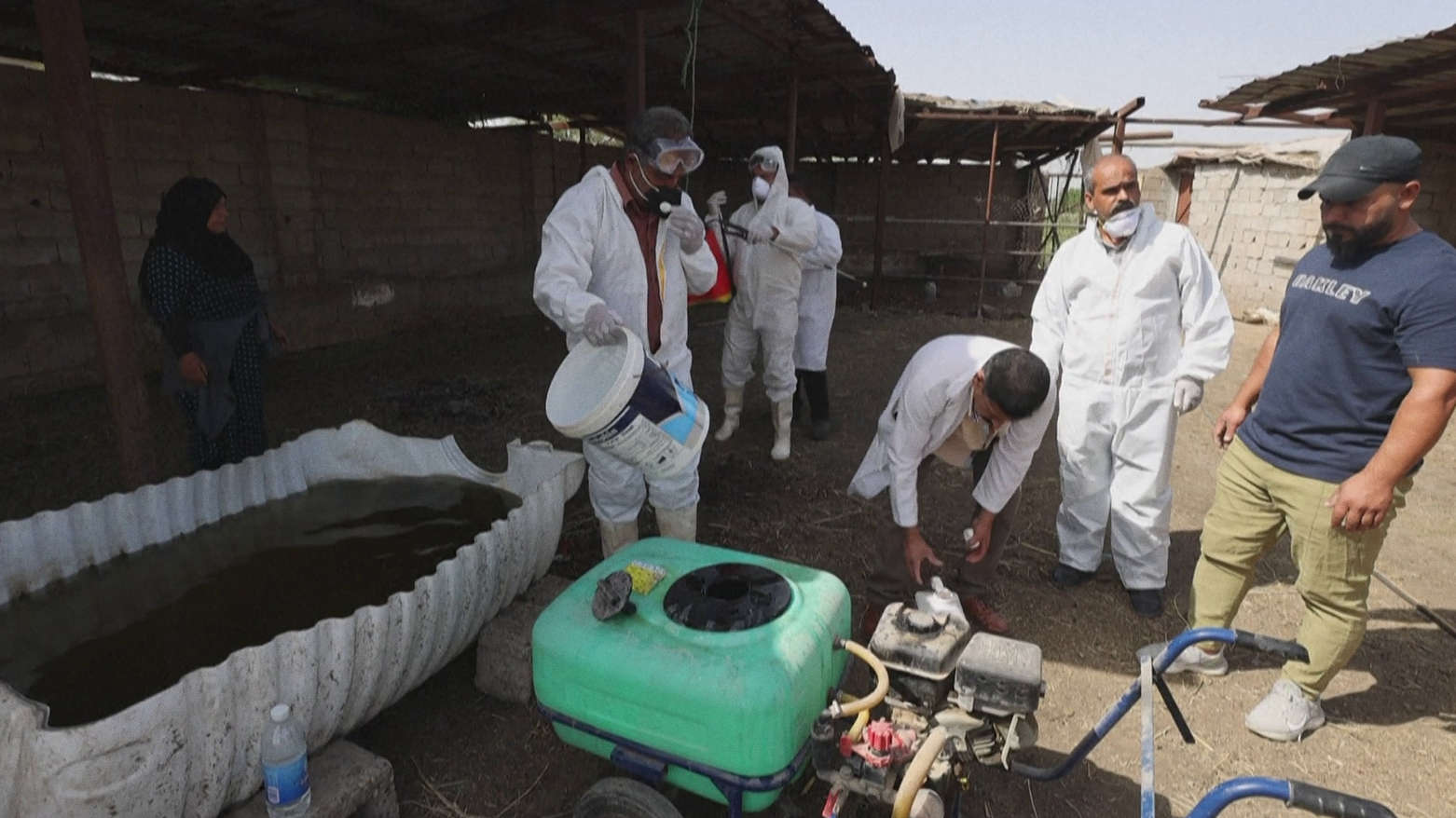Woman in Najaf Dies of Hemorrhagic Fever as Iraq's CCHF Cases Continue to Rise
A woman in her 60s died of Crimean-Congo Hemorrhagic Fever in Najaf, health officials confirmed. Iraq has recorded 179 cases and 23 deaths in 2025. Authorities warn against unsafe butchering and urge public caution as infections continue to rise.

By Kamaran Aziz
ERBIL (Kurdistan 24) — A woman in her sixties has died of Crimean-Congo Hemorrhagic Fever (CCHF) in Najaf province, a health source confirmed on Tuesday, highlighting ongoing concerns about the spread of the deadly viral disease across Iraq.
According to the health official who spoke to Iraqi local media, the woman passed away on the evening of Monday, June 30, at a hospital in the city of Najaf. "On Monday evening, a woman in her sixties passed away in a hospital in the city of Najaf due to hemorrhagic fever," the source reported. The patient had been admitted after testing positive for CCHF, but later succumbed to the disease in her sleep.
The deceased, reportedly a resident of one of the central Euphrates provinces, was transferred to the forensic medicine department in accordance with legal procedures. "The woman’s body was transferred to the forensic medicine department to complete the legal procedures before handing it over to her family," the health source added.
This case follows another recent report on Monday, June 30, regarding a suspected CCHF-related death in Maysan province. However, the Maysan Health Directorate later clarified that it had not been confirmed whether the patient had died from hemorrhagic fever.
The rise in confirmed CCHF cases has become a significant public health concern in Iraq. On June 29, Dr. Thaer Sabri Hussein, Director of the Epidemics Department at the Veterinary Directorate of Iraq’s Ministry of Agriculture, disclosed updated national figures during a press briefing. He announced that the number of confirmed CCHF cases across the country had reached 179, with 23 fatalities.
According to Dr. Hussein, the southern province of Dhi Qar reported the highest number of infections, with 50 confirmed cases and one death. The capital, Baghdad, followed with 28 cases and eight deaths. Najaf, along with Karbala, Anbar, and Salahuddin, had the lowest confirmed incidence, with only one case each recorded at the time.
Iraq’s Ministry of Agriculture has reported a 71% rise in CCHF infections in 2025, citing a combination of public health factors. Despite this sharp increase, officials confirmed that containment efforts have been successful in Dhi Qar, the province most affected by the outbreak.
Dr. Hussein stated: “The virus has been controlled in Dhi Qar through the provision of anti-tick pesticides,” explaining that a targeted spraying campaign had been launched to disinfect livestock pens and surrounding areas. Livestock were treated through immersion in a 5% concentration of deltamethrin for 14 days, with the process scheduled to be repeated after a similar interval.
He added: “In case of a detected disease hotspot, a 15-square-kilometer quarantine is imposed, banning animal movement in or out of the area.”
The rise in infections has been attributed to several factors, including limited public awareness and non-compliance with health guidelines. Dr. Hussein cited “handling meat infected with ticks, the ritual slaughter of animals during Eid al-Adha, and the spread of unregulated butchering” as primary causes of transmission.
In response, the Ministry of Agriculture is urging the public to purchase meat only from safe, trusted sources and to freeze meat before consumption to eliminate the virus. Dr. Hussein further called for “a ban on animal slaughter inside butcher shops or near residential areas and public roads,” warning that such practices pose a serious public health risk.
Crimean-Congo Hemorrhagic Fever is a viral disease primarily transmitted through tick bites or contact with the blood or tissues of infected livestock. It presents a severe risk to human health, often leading to sudden fever, muscle aches, dizziness, and in severe cases, hemorrhaging and organ failure. The disease has a high mortality rate and requires strict quarantine and biosecurity protocols.
Health officials continue to urge the public to adhere to hygiene guidelines and avoid exposure to livestock or raw animal products, particularly in high-risk regions. Veterinary and epidemiological teams across Iraq are conducting increased surveillance, particularly in rural areas and slaughterhouses, to contain further spread.
As Iraq battles to control the disease, the latest fatality in Najaf underscores the urgent need for continued vigilance, public awareness, and improved coordination between medical and agricultural authorities.
Kurdistan 24 will continue to follow the story and provide updates as further information becomes available.
